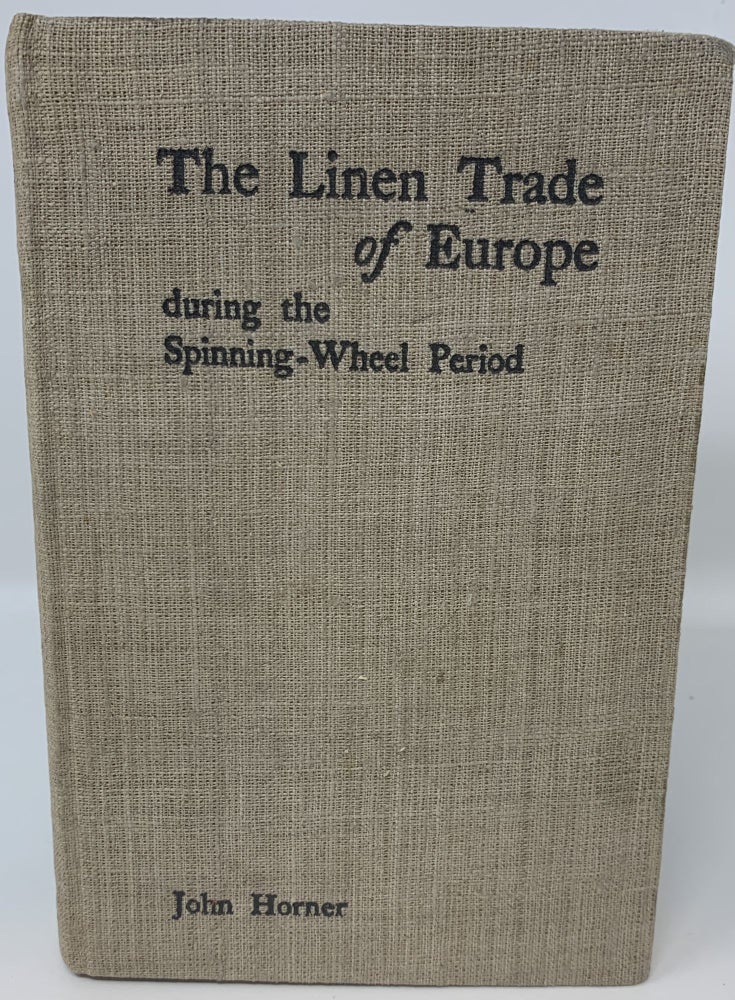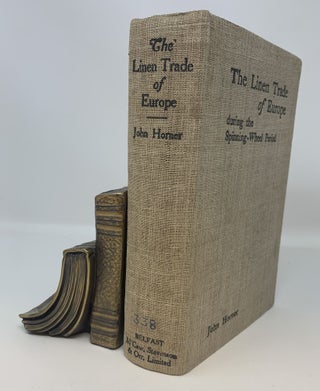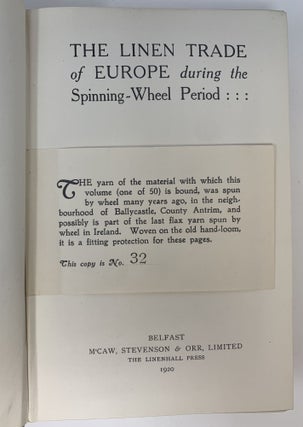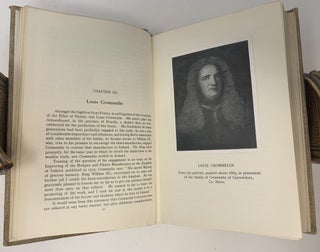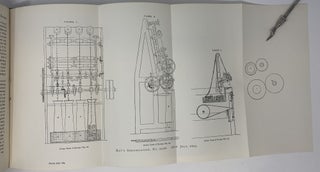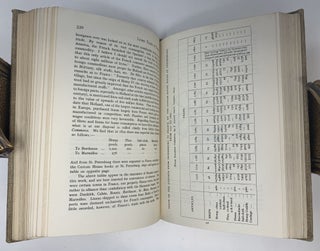THE LINEN TRADE OF EUROPE DURING THE SPINNING-WHEEL PERIOD
Belfast, Northern Ireland: M'Caw, Stevenson & Orr, Limited: The Linenhall Press, 1920. Limited, numbered edition. Hardcover. 8vo (8 1/2 in. x 5 1/2 in.) Beige woven flax linen-covered boards, with dark brown embossed lettering to front board and spine. Limited numbered edition, No. 32 out of 50 produced. A three-digit library number in ink (!) near bottom of spine, and some staining to spine. Lightly nudged corners. Tipped-in photograph, 4 foldout charts, numerous drawings -- especially of spinning wheels. 591 pp., including index. Very Good Minus. Item #85047
"The yarn of the material with which this volume (one of 50) is bound, was spun by wheel many years ago, in the neighbourhood of Ballycastle, County Antrim, and possibly is part of the last flax yarn spun by wheel in Ireland. Woven on the old hand-loom, it is a fitting protection for these pages" (from limitation slip, tipped-in just before title page).
The covers for the book were quite possibly woven at An Tuirne Beag (meaning The Spinning Wheel), which was a craft workshop in Ballycastle in the north of county Antrim. This venture, also known as the Irish Peasant Home Industries, was set up by Francis Riddell, with the assistance of F.J.Bigger , in 1903. It was part of the 19th century Irish folk Art Revival that had its roots in the English Arts and Crafts Movement founded by the visionary artist and social activist William Morris. It was believed by many at the time that money could be attracted into deprived rural areas with the establishment of local craft industries. As a low impact business it would allow rural life to continue with minimal disruption to their landscapes. Creating a rural population that would benefit from the best of all worlds with physical security, a landscape not desecrated by industrial urban sprawl as well as, what the Irish playwright J.M Synge called, ‘the artistic beauty of mediaeval life’.
Price: $125.00


